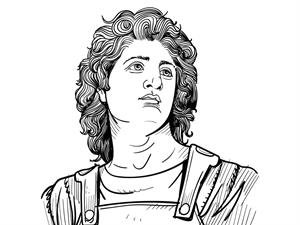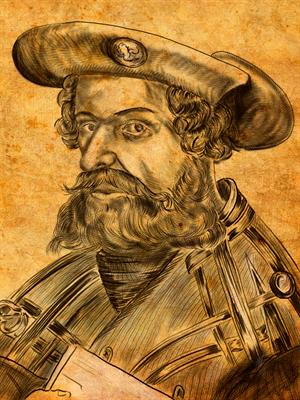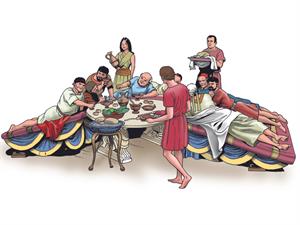
PUMPA - SMART LEARNING
எங்கள் ஆசிரியர்களுடன் 1-ஆன்-1 ஆலோசனை நேரத்தைப் பெறுங்கள். டாப்பர் ஆவதற்கு நாங்கள் பயிற்சி அளிப்போம்
Book Free DemoAlexander the Great:
The Rise of City-States in Greece took a long time to devise a hierarchy and therefore was open to adopting various practices from other civilisations. Alexander the Great became the leader and took the rule of Macedonia, a Greek kingdom in \text{336 BC}; under him, the territorial expansion witnessed its zenith.

Alexander the Great
He built an empire that stretched from Greece to India, which took Greek culture to the nook and corner of the world. Most of the years of Alexander’s life were spent on Battlefields.
Hellenistic Civilisation: It was a period of cultural expansion that lasted from the death of the mighty Alexander in \text{323 BC} to \text{31 BC}. Kings hold absolute power in Hellenistic states.
Alexander had a huge infantry power which was inherited from his father King Phillip II. His ultimate aim was to capture the lands of Persia, which his father did not accomplish.
Alexander and his armies marched and captured Persia, Egypt and parts of Western Asia and also expanded his conquest towards the Indus Valley.
The war-borne king and his troops met their end on their way to Babylon after a successful conquest in \text{323 BC}.
The Golden age of Alexandria:
The Civilisation that flourished in Greek Alexandria saw the emergence of scholars and philosophers who had extraordinary knowledge in various subjects.
These scholars introduced a world of new theories and concepts in Astronomy, Mathematics, Philosophy and Science, which was later adopted by other parts of the world.
Some of the greatest scholars of Alexandria are:
Euclid: A Mathematician, well known for his book on Geometry, “The Elements”. This book was a torchbearer in the field of Mathematics which was used by Western people.
Hipparchus: A renowned Mathematician of Greece, displayed the concepts of Trigonometry and its tables and also the methods to solve the Spherical triangles.
Ptolemy: He was the most famed Astronomer of Greece. He also propounded the “Geocentric theory of the Solar system” and spoke about the planets.


Ptolemy
Eratosthenes: He was a Greek Mathematician who was the pioneer in the field of Prime numbers, later he also went on to calculate the “Diameter of the Earth” with the highest accuracy.
The latter half of the 6th century saw the rise of the small city-state Rome, which subverted the existing monarch system and created a Republican form of government.
After relieving from the clutches of Monarchy, Rome was at primitive stages of development with peasants and craft persons living under the state. Taxes were collected from peasants for the development of the state.
The power struggle began when the landlords started to exert their dominance on the working class.

Patricians Vs Plebeians:
The dominance displayed by the land-owning Patricians irked the working class due to overexploitation in the name of taxes. The lack of employment further aggravated this simmering issue.

The Patrician Class
The landlords engaged in battle with adjacent areas and captured people from those places as war prisoners traded in Slave markets.
The Slaves were later employed in fields owned by the Patricians, which left the peasant class jobless and made them revolt against the Patricians.
Conflict of Orders: This was an incident where the Plebeians went on a strike to restore their positions in the society which they won in later stages from the Patricians.
The Death of Gracchus Brothers:
A well-educated and informed duo called the Gracchus brothers argued in favour of the Plebeians among the Patrician class.
Tiberius Gracchus, the elder brother, voiced for the distribution of lands for the unemployed and the peasant class, which in his view, would settle the struggle. His younger brother Gaius Gracchus also supported the idea.
Irked by the developments, the Patrician class called for the murder of Tiberius Gracchus, and his younger brother Garius was made to commit suicide.